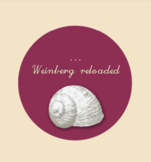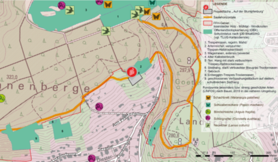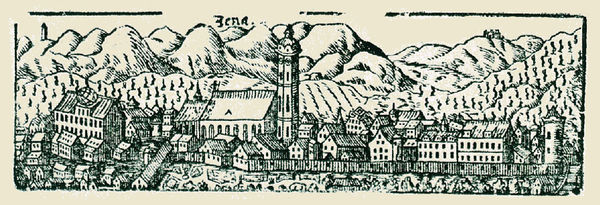
"Weinberg reloaded"
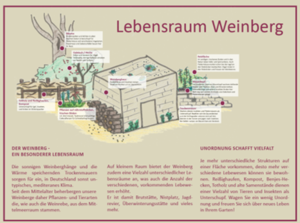
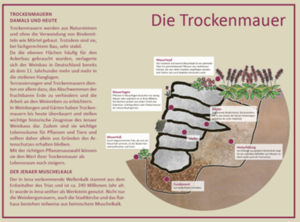
Hollow ways, piles of stones, dry stone walls, field terraces - these old, visible references to past forms of land use can still be found quite often in the area around the city of Jena. They are part of the landscape, often they even shape its characteristic face. But it is precisely the mostly incidental perception of these historical forms, as well as the lack of knowledge of their historical origin, that more and more of these historical elements are being lost, decayed or overbuilt.
The purpose of this master's thesis is to show how the historic wine-growing landscape of Jena can be made accessible and tangible again for people and how its preservation can be secured. Viticulture and the development of the city of Jena have always been closely linked. An earlier inventory of historical relics of the Jena wine-growing landscape from 2015 (see project "Historical Viticulture in Jena", 2015) showed that many wine-growing relics still exist and are partly in a good structural condition. In addition, it became clear, e.g. by chance conversations during the recording of the relics, that the historical viticulture of Jena is still preserved in the collective memory of the population.
At this point the question arose as to how this important chapter of Jena city history can be made usable again for the city of Jena and its citizens. Can viticulture give the city (back) a piece of positive identity that goes beyond that of a modern business and university location? This work takes up the proposal of a “museum vineyard” made in 2015 as part of the student project work mentioned above, by presenting a detailed draft for a museum-like demonstration vineyard based on a historical model. In this context, both the historical background of Jena viticulture and the connections between historical use and biodiversity are examined. On the basis of the knowledge brought together within this work, an overall concept as well as a specific area design will be developed in order to make the Jena wine landscape and the ecological added value of this historical cultural landscape accessible again to the potential visitor.
Christina Höpflinger
